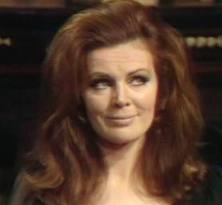Dick Clark
 |
| 1929-2012 |
The show ran every weekday afternoon for years, and then on Saturdays for many more; from 1956-1989, Clark was its host.
During this period, his production company assumed ownership of the franchise. dick clark productions (note the lower case letters) became a prolific factory of programs which would today be classified as part of the reality genre. Various blooper shows ran for years, as they were dirt cheap to produce, while Clark created the American Music Awards, and his company produced the Golden Globes and the Daytime Emmys.
I was not a big devotee of American Bandstand, and Dick Clark always seemed a little...um...noncharismatic, though nobody seemed to question his hosting skills.
I was pleased when he revived the old quiz show, The $10,000 Pyramid, upping the ante to 25 and then 100 grand. It was an interesting show which moved faster than Password and was easier than Jeopardy. And the final round was always exciting:
I would suggest that one of Dick Clark's biggest accomplishments is New Year's Rockin' Eve, a foolish title for a good idea.
Clark was the first to suspect that there might be an audience watching television at midnight on New Year's Eve who were not enchanted by that crypt keeper Guy Lombardo and his Oompah Orchestra. At the time, Lombardo's show was the only one hosting the big ball drop in Times Square. In the early 1970s, Dick produced a series of musical specials which became the annual alternative to Lombardo. These days, all the networks and many of the cable channels offer their own version of Clark's idea.
Everybody knows Dick Clark died this week, and that he has been suffering the effects of a stroke for some years. His resume boasts four Emmy Awards plus a Lifetime Achievement, as well as a Peabody, and he can also be blamed for the following Dance Party.
In 1977, Barry Manilow penned updated lyrics to the existing theme song for American Bandstand, and has been using it in his act ever since. This clip is apparently from a concert he gave in England during his heyday.
































































,+Olney+Theatre+Center,+2004.jpg)



,+Shakespeare+Theatre+Company,.jpg)


,+Warehouse+Theatre,+1999.jpg)
,+Are.jpg)
,+Everyman+Theatre,2002.jpg)
,+First+Nationa.jpg)
,+Shakespeare+Theatre+Company,.jpg)






,+Granada+Th.jpg)
,+Globe+Playhouse,.jpg)
,+CSUN,+1976.jpg)


